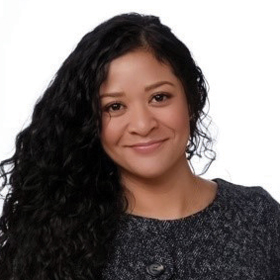
It’s been a busy year for McKenzie that included spearheading AMC Networks’ first official partnership with Veterans in Media & Entertainment and collaborating on its first Indigenous Non-Profit PSA with the Native American Rights Foundation. She also helped AMCN tap its first Native American diverse supplier, with Amber Morningstar Byars serving as impact producer on IFC Film “Lakota Nation vs. United States.”
Who would play you in a movie about your life? Tracee Ellis Ross, not as herself, but her character from “Girlfriends,” Joan. Joan was the first time I saw an unapologetically awkward and charming bi-racial Black woman lawyer represented on TV and I lived off episodes of Girlfriends during law school almost as a lifeline.
Why do you think DEI has come under attack by some? I think the operative word is “some” and gets lost in the panic sauce. The story of America, as I see it, is one of increasing societal awareness and progressive diversity, equity and inclusion of marginalized communities – and it’s a story that has also always included resistance and opposition to each wave of progression – this is nothing new.
So, the first issue is that the “backlash” headlines garner more attention than the large number of organizations that are continuing to quietly do that work they have always done to advance DEI. I also think that the opposition has successfully taken the term DEI and somehow made it problematic – when in truth – when you break down the meaning of each term for folks and describe the policies and practices that underlie the work, most people still (both in the US and abroad) support DEI related policies and practices and also benefit from those policies and practices.
What nonprofit are you proud to champion and why? I am a proud board member of BTC – an organization dedicated to diversifying the entertainment industry by providing opportunities for emerging professionals to be placed with producers of theater, television and film, who serve as fellowship hosts, and provide mentorship and experiential opportunities for fellows to hone their craft – including at AMCN, in casting and production roles with many going on to full-time roles in their chosen field.
What movie or show is must-watch for celebrating diversity? A friend and filmmaker, Reggie Life, produced a film (narrated by Joe Morton!) that changed my life, called “Doubles” – a documentary on bi-racial Japanese children living in Japan and their families 30 years after WWII. Mixed children of Japanese descent are often referred to as “half” in the Japanese language, and I’ll never forget one of the children interviewed, she resisted this term and said, “I’m not half anything – I’m double.” I was blown away by so many things in that moment – the innocent and powerful recognition of a child that she was not “less” than but rather “more than” as a result of her mixed heritage and the ways in which, race, gender, power and society all have a role to play in how we are defined and how we defy definition and the incredible power of storytelling (in this case, the medium of documentary) to change and challenge our perceptions.
What does work-life balance mean to you? Whatever you want to call it, work-life balance or work-life integration – the bottom line is maintaining systems, consistent habits and boundaries. If you know me, you know that I am deeply passionate about my job and the incredible people I get to collaborate with – sometimes that enthusiasm is hard to manage and can overtake and zap energy meant for other parts of my life. I know that in order for me to bring my best self to work and to my personal life, I need to set boundaries between work and home and for me, that means things like making sure I’m being honest about what needs to be a meeting vs. email, prioritizing bedtime stories and ensuring workouts are non-negotiable (it’s not an if, it’s a when).
My google calendar where I keep track of all of my personal and kid-related commitments is color-coded with multiple notifications within an inch of its life and I try as much as possible to streamline the things that don’t matter as much (I might sacrifice making a home-cooked meal, for example, so that I can actually connect with my kids). I lost my 17-year-old Bichon this year and I think about the number of walks I missed taking him on because I was busy – it was a wake-up call for me to make sure I don’t regret the choices I make about how I spend my time.